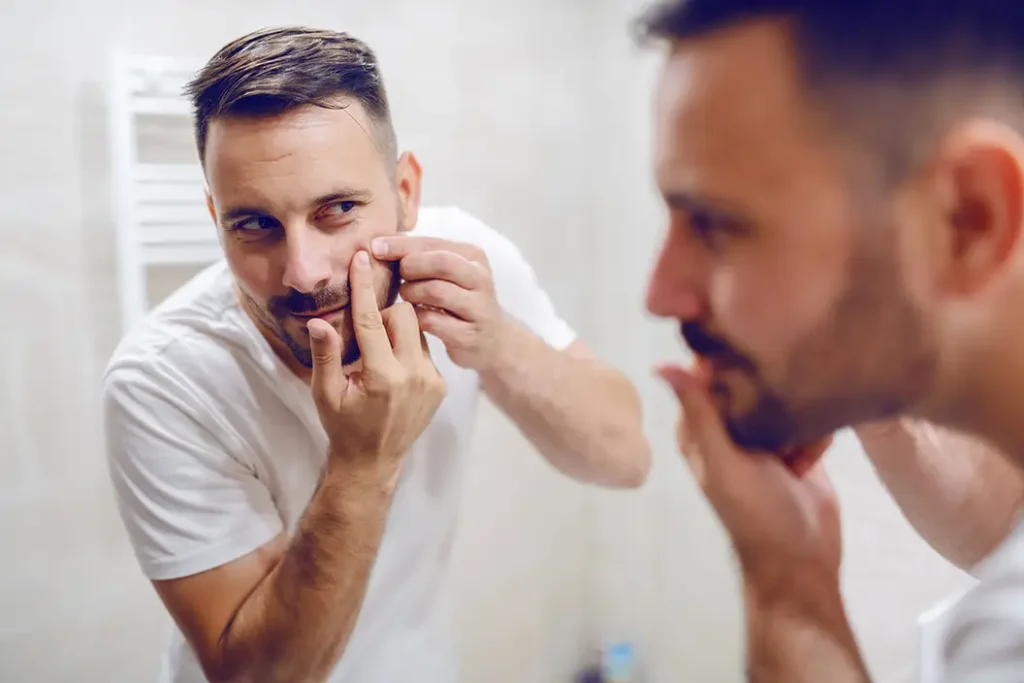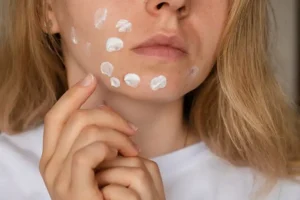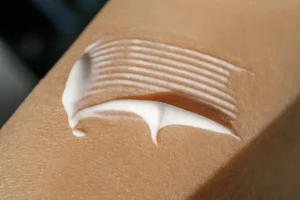Acne scars can be frustrating and long-lasting, affecting more than just your skin—they can impact your confidence too. Treating scars is much harder and less effective than preventing them in the first place. The good news? With the right care, you can significantly reduce the risk of permanent scarring. Here’s what you need to know about why scars form, what triggers them, and how to prevent them.
Why Do Acne Scars Appear?
Scars form when inflammation from acne damages the deeper layers of your skin. When your skin attempts to repair itself, it produces collagen to rebuild the damaged area. However, the process isn’t always perfect:
- If your skin produces too little collagen, depressions or pits form, creating atrophic scars.
- If your skin produces too much collagen, raised scars, or hypertrophic scars, may develop.
Inflammation is the main culprit behind these issues, and how well your skin heals depends on how deep the inflammation is and how quickly you intervene.
Main Triggers of Acne Scarring
Certain habits and factors make scarring more likely. Here are the biggest triggers to watch out for:
- Severe or Deep Inflammation: Cystic or nodular acne causes deeper damage to the skin, making it harder to heal smoothly.
- Delayed or Inadequate Treatment: Leaving acne untreated allows inflammation to persist longer, increasing the risk of scars.
- Picking or Squeezing Pimples: This disrupts the healing process by forcing bacteria deeper into the skin, worsening inflammation, and causing physical trauma.
- Genetic Predisposition: Some people’s skin is more prone to scarring, even from mild breakouts.
Tailor Your Routine to Prevent Scarring
Preventing scars requires a thoughtful skincare routine. The key is targeting inflammation, managing active acne, and promoting skin repair with the right ingredients.
For Inflammation Control
Reducing inflammation is essential to minimize skin damage and the risk of scars.
- Niacinamide: This ingredient soothes redness, calms irritation, and strengthens the skin barrier, making it a versatile option for acne-prone skin.
Try: - Azelaic Acid: A gentle anti-inflammatory that also helps fade dark marks left behind by acne.
Try:
- Centella Asiatica: Known for its powerful calming and healing properties, centella is excellent for reducing inflammation and supporting skin repair.
Try:- COSRX Centella Blemish Cream: A targeted treatment for inflamed acne and redness.
- Dr. Jart+ Cicapair Tiger Grass Cream: Perfect for soothing sensitive, irritated skin while promoting healing.
For Active Breakouts
Targeting active acne is crucial to prevent new scars from forming.
- Salicylic Acid: This ingredient exfoliates inside the pores, reducing clogs and calming breakouts.
Try: - Benzoyl Peroxide: Kills acne-causing bacteria and reduces inflammation, especially for pustules or whiteheads.
Try:
Tip: Alternate salicylic acid and benzoyl peroxide if you have sensitive skin, as using them together can cause dryness.
Choose the Right Moisturizer
Hydration is critical for healing skin, but not all moisturizers are suitable for acne-prone skin. Choose lightweight, non-comedogenic options that won’t clog pores or exacerbate breakouts. Look for moisturizers with these ingredients:
- Ceramides: Help restore the skin barrier and retain moisture, reducing irritation.
- Hyaluronic Acid: Delivers deep hydration to the skin without contributing to excess oil, making it a perfect choice for acne-prone complexions.
Recommended Options:
- CeraVe PM Facial Moisturizing Lotion: Features a blend of ceramides, hyaluronic acid, and niacinamide to restore the skin barrier and provide lightweight hydration.
- La Roche-Posay Toleriane Double Repair Face Moisturizer: Hydrates while calming inflammation.
- Neutrogena Hydro Boost Water Gel: A lightweight option with hyaluronic acid for oily or acne-prone skin.
- First Aid Beauty Ultra Repair Oil-Control Moisturizer: Hydrates while managing excess oil.
For Sun Protection: Use Mineral-Based Sunscreens
Sunscreen is essential to prevent darkening of post-acne marks and protect healing skin from further damage. Opt for non-comedogenic, mineral-based sunscreens for acne-prone skin.
Recommended Options:
- EltaMD UV Clear Broad-Spectrum SPF 46: Contains niacinamide to soothe acne-prone skin while providing excellent UV protection.
- La Roche-Posay Anthelios Mineral Sunscreen SPF 50: A lightweight, non-greasy formula perfect for sensitive or acne-prone skin.
Seek Help When Needed
If you notice early signs of scarring, such as depressions or marks that don’t fade, don’t hesitate to seek help from a dermatologist. They can recommend advanced treatments to minimize scars and prevent new ones from forming. Professional care is especially important for cystic or nodular acne, where the risk of scarring is highest.





